Filter by
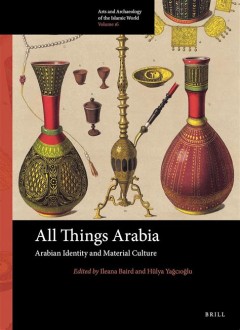
All Things Arabia
By employing the innovative lenses of 'thing theory' and material culture studies, this collection brings together essays focused on the role played by Arabia's things - from cultural objects to commodities to historical and ethnographic artifacts to imaginary things - in creating an Arabian identity over time. The Arabian identity that we convey here comprises both a fabulous Arabia that has h…
- Edition
- -
- ISBN/ISSN
- 9789004435919
- Collation
- 269 hlm; ill., lamp.,
- Series Title
- -
- Call Number
- -

Between Peace and Conflict in the East and the West
- Edition
- -
- ISBN/ISSN
- 9783030774899
- Collation
- -
- Series Title
- -
- Call Number
- -
- Edition
- -
- ISBN/ISSN
- 9783030774899
- Collation
- -
- Series Title
- -
- Call Number
- -
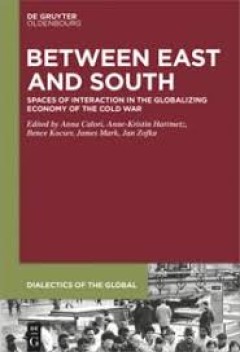
Between East and South
On a Wednesday morning in April 1962, Viktor Karamyshev had to get up early. He was summoned to a meeting at the Ghanaian State Committee for Economic Cooperation with the Soviet Union, China, and Eastern European Countries (CECEC) in Accra
- Edition
- -
- ISBN/ISSN
- 9783110646030
- Collation
- 253
- Series Title
- -
- Call Number
- -
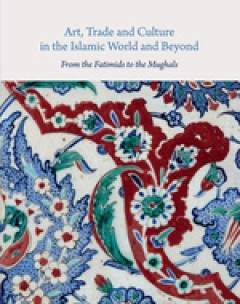
Art Trade and Culture
The essays in this book trace a rich continuum of artistic exchange that occurred between successive Islamic dynasties from the twelfth through nineteenth centuries—as well as the influence of Islamic art during that time on cultures as far away as China, Armenia, India, and Europe. Taking advantage of recent technologies that allow new ways of peering into the pasts of art objects, the autho…
- Edition
- -
- ISBN/ISSN
- 9781914983238
- Collation
- oer.unej.ac.id
- Series Title
- -
- Call Number
- -

A Coat of Many Colors : Dress Culture in the Young State of Israel
A Coat of Many Colors investigates Israel's first seven years as a sovereign state through the unusual prism of dress. Clothes worn by Israelis in the 1950s reflected political ideologies, economic conditions, military priorities, social distinctions, and cultural preferences, and all played a part in consolidating a new national identity. Based on a wide range of textual and visual historical …
- Edition
- -
- ISBN/ISSN
- 9781644693261
- Collation
- 300 hlm
- Series Title
- -
- Call Number
- -
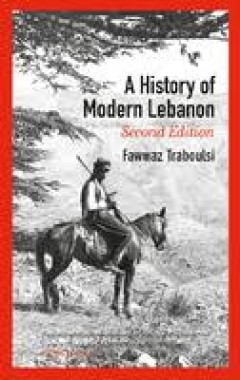
A History of Modern Lebanon - Second Edition
This is the second updated edition of the first comprehensive history of Lebanon in the modern period. Written by a leading Lebanese scholar, and based on previously inaccessible archives, it is a fascinating and beautifully-written account of one of the world's most fabled countries. Starting with the formation of Ottoman Lebanon in the 16th century, Traboulsi covers the growth of Beirut as a…
- Edition
- -
- ISBN/ISSN
- 9781849647281
- Collation
- 320 hlm
- Series Title
- -
- Call Number
- -
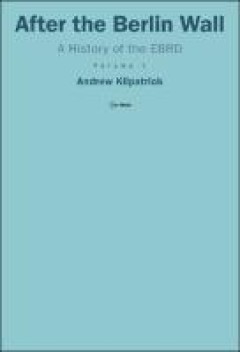
After the Berlin Wall
After the Berlin Wall' tells the inside story of an international financial institution, the European Bank for Development and Reconstruction (EBRD), created in the aftermath of communism to help the countries of central and eastern Europe transition towards open market-oriented democratic economies. The first volume of a history in two parts, After the Berlin Wall charts the EBRD’s life from…
- Edition
- -
- ISBN/ISSN
- 9789633863947
- Collation
- 420
- Series Title
- -
- Call Number
- -
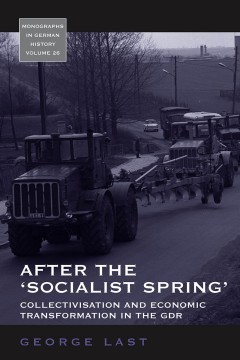
After the "Socialist Spring"
Drawing on a broad range of archival material from state and SED party sources as well as Stasi files and individual farm records along with some oral history interviews, this book provides a thorough investigation of the transformation of the rural sector from a range of perspectives. Focusing on the region of Bezirk Erfurt, the author examines on the one hand how East Germans responded to the…
- Edition
- -
- ISBN/ISSN
- 9781789201086
- Collation
- -
- Series Title
- Monographs in German History
- Call Number
- -

Accomplishments, Collaborative Projects and Future Initiatives in Breast Canc…
This eBook is a collection of articles from a Frontiers Research Topic. Frontiers Research Topics are very popular trademarks of the Frontiers Journals Series: they are collections of at least ten articles, all centered on a particular subject. With their unique mix of varied contributions from Original Research to Review Articles, Frontiers Research Topics unify the most influential researcher…
- Edition
- -
- ISBN/ISSN
- 9782889631322
- Collation
- oer.unej.ac.id
- Series Title
- -
- Call Number
- -

1989 and the West: Western Europe since the End of the Cold War
Back in 1989, many anticipated that the end of the Cold War would usher in the ‘end of history’ characterized by the victory of democracy and capitalism. At the thirtieth anniversary of this momentous event, this book challenges this assumption. It studies the most recent era of contemporary European history in order to analyse the impact, consequences and legacy of the end of the Cold War …
- Edition
- -
- ISBN/ISSN
- 9781351379939, 9781138505070
- Collation
- -
- Series Title
- -
- Call Number
- -
 Computer Science, Information & General Works
Computer Science, Information & General Works  Philosophy & Psychology
Philosophy & Psychology  Religion
Religion  Social Sciences
Social Sciences  Language
Language  Pure Science
Pure Science  Applied Sciences
Applied Sciences  Art & Recreation
Art & Recreation  Literature
Literature  History & Geography
History & Geography